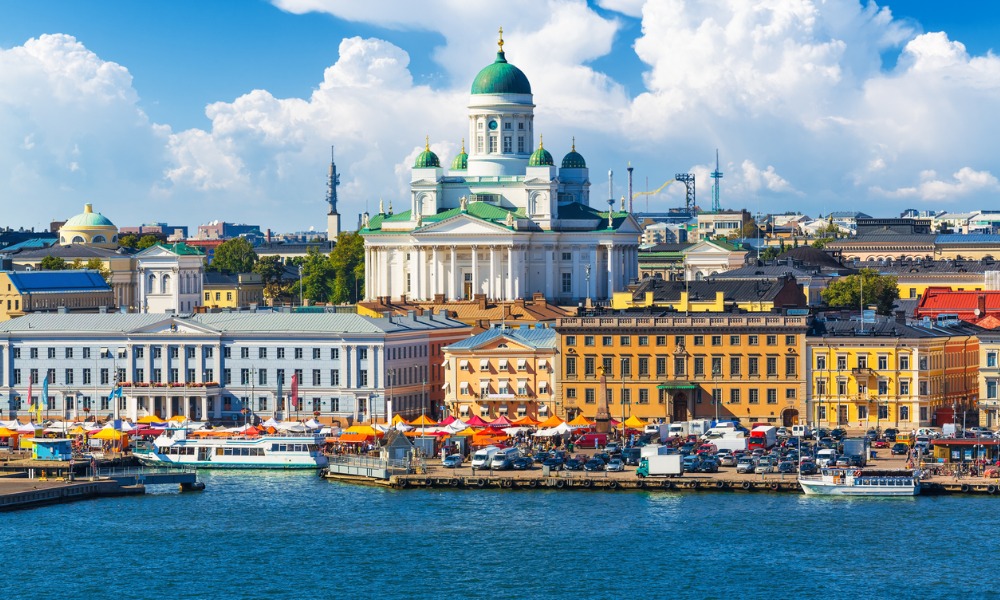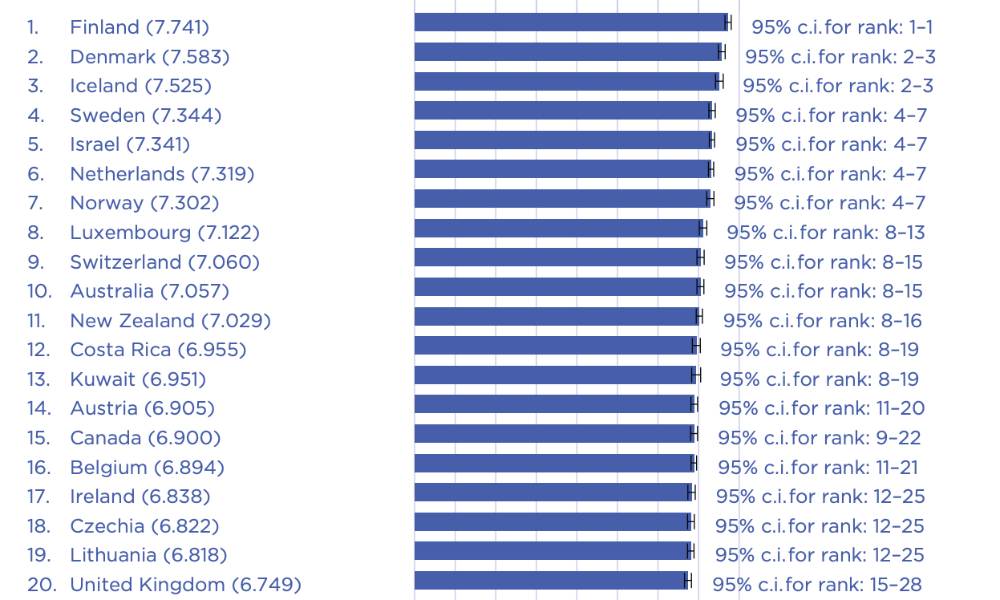
New report shows differences in people’s assessments by age group

Finland remains in the top spot as the happiest country on Earth for the seventh consecutive year, according to the latest World Happiness Report (WHR).
The report — produced in partnership by Gallup, the Oxford Wellbeing Research Centre, the UN Sustainable Development Solutions Network, and the WHR's Editorial Board — was based on the three-year average of each population's average assessment of their quality of life.
According to the report, Finland is still on top, with Denmark at a close second.
"The top 10 countries have remained much the same since before COVID," the report read. "But in the next 10, there is more change, with the transition countries of Eastern Europe rising in happiness."

Source: World Happiness Report 2024
The United States (23) fell off the top 20 for the first time since the report was launched in 2012, which the report attributed to a large drop in the wellbeing of Americans under 30.
Afghanistan also remained at the bottom of the overall rankings as the world's unhappiest nation, according to the report.
By region, Central and Eastern Europe saw happiness go up across every age group. This is also the case in the former Soviet Union and East Asia.
South Asia and the Middle East and North Africa, however, saw happiness drop at every age.
John Helliwell, Emeritus Professor of Economics at the Vancouver School of Economics, University of British Columbia, said the results of the study were "pretty striking."
"There is a great variety among countries in the relative happiness of the younger, older, and in-between populations," said Helliwell, who is also a founding editor of the WHR, in a statement. "Hence, the global happiness rankings are quite different for the young and the old, to an extent that has changed a lot over the last dozen years."
Lithuania emerged as the happiest country for children and young people under 30, while Denmark is the happiest for those 60 and older.
The report attributed the differences to life circumstances.
"As between generations, after taking into account age and life circumstances, those born before 1965 have life evaluations about one-quarter of a point higher than those born after 1980," the report read.
Still, the young are happier than the old in many regions, particularly in Central and Eastern Europe.
"But in North America happiness has fallen so sharply for the young that they are now less happy than the old," the report said.
Jon Clifton, CEO of Gallup, said the report seeks to offer insights into people's perceptions of life on Earth.
"It offers more than just national rankings; it provides analytics and advice for evidence-based planning and policymaking," Clifton said in a statement. "Our role in research on World Happiness is a natural fit with our longstanding mission: providing leaders with the right information about what people say makes life worthwhile."